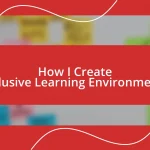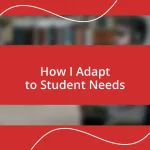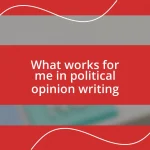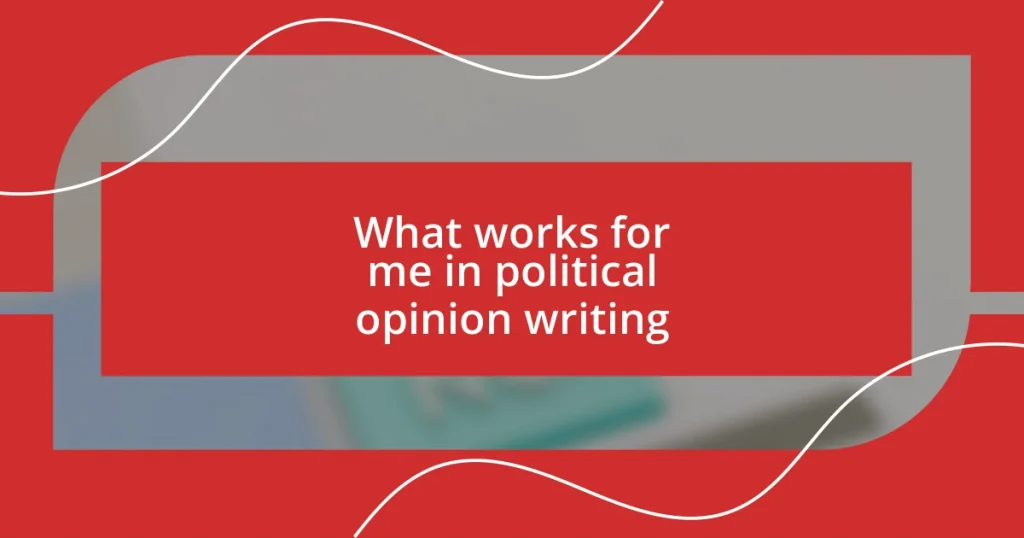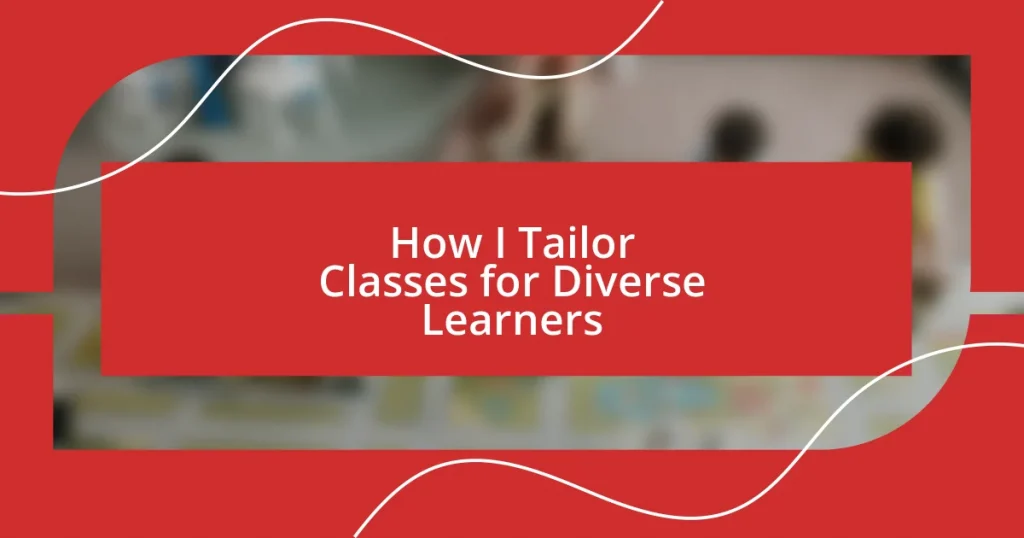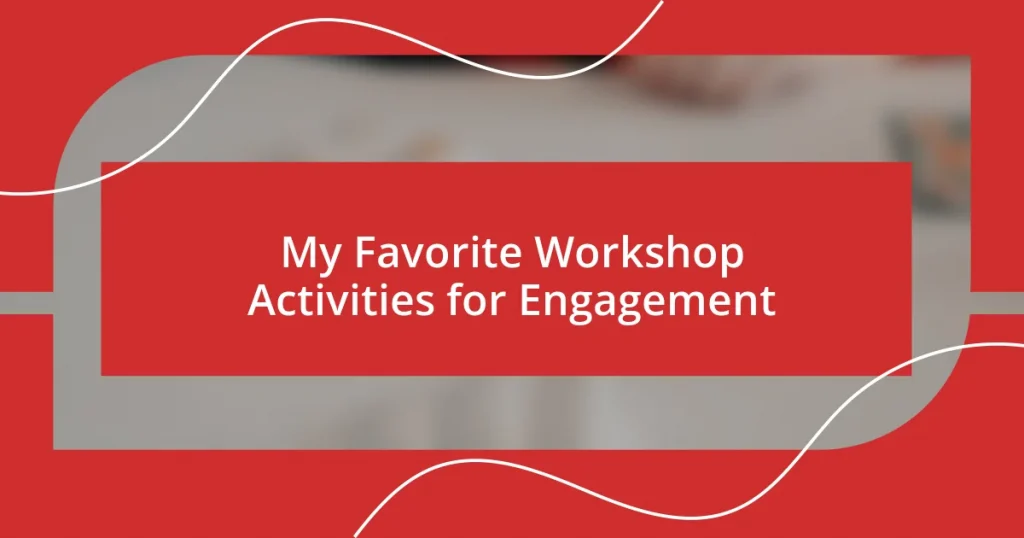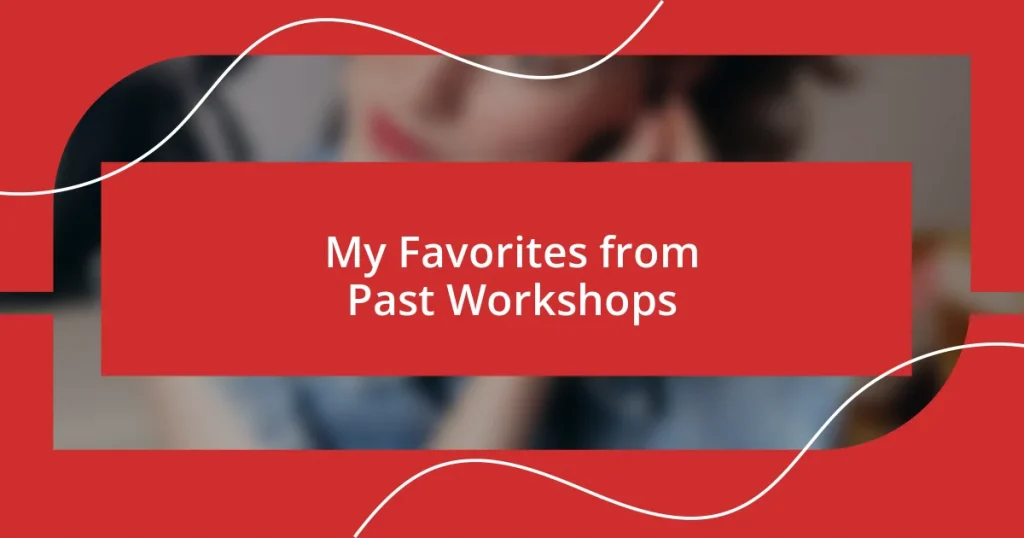Key takeaways:
- Finding your unique voice in political opinion writing is crucial for authenticity, shaped by personal experiences and emotions.
- Understanding your audience through empathy and engagement enhances clarity and fosters a deeper connection in writing.
- Effective structuring and editing significantly improve clarity and impact, transforming complex ideas into relatable arguments.
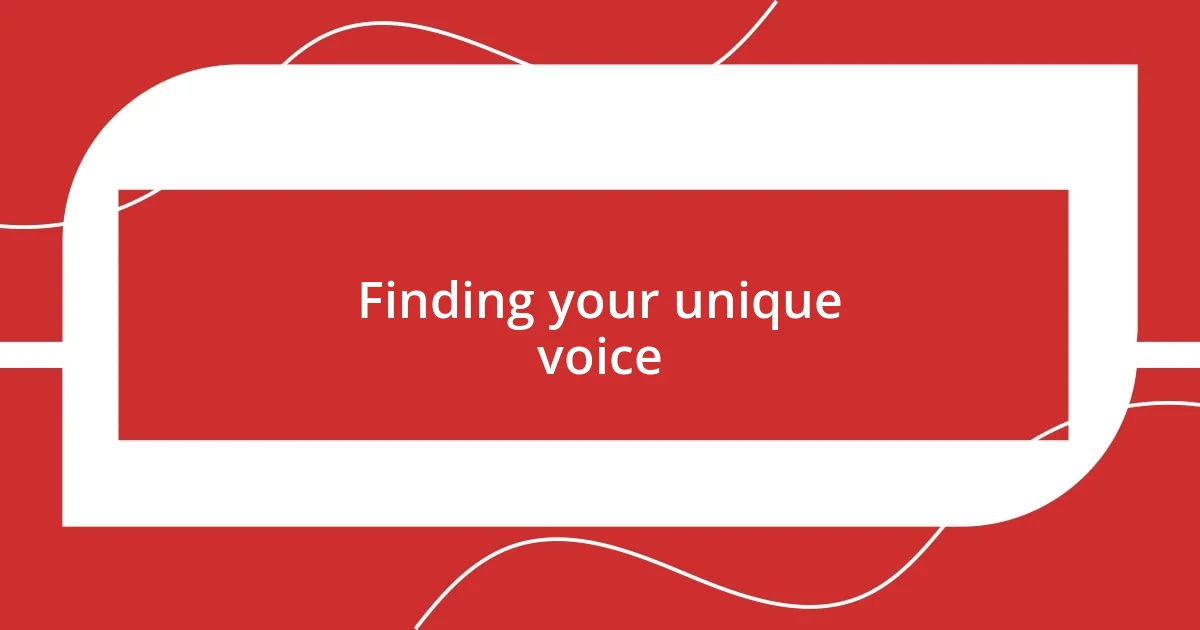
Finding your unique voice
Finding your unique voice in political opinion writing is about authenticity. I remember the first time I wrote a piece that reflected my true beliefs; it felt like finally taking a deep breath after holding my breath for too long. Does that resonate with you too? The moment I embraced my personal experiences and emotions, everything clicked.
As I delved deeper into this journey, I began to realize that my voice was shaped by my background and my passions. Every opinion I wrote was a reflection of who I am and what I stand for. I often asked myself, “What makes my perspective different?” This question helped me carve out my niche amidst the cacophony of politics, leading me to harness my experiences to bring fresh insights to my readers.
Discovering my voice also meant being open to vulnerability. I recall sharing a story about my family’s struggles with immigration, which elicited heartfelt responses from readers. It made me wonder, how many times do we hold back our stories for fear of judgment? In sharing those personal angles, I found that my voice not only resonated with others but also created a sense of community.
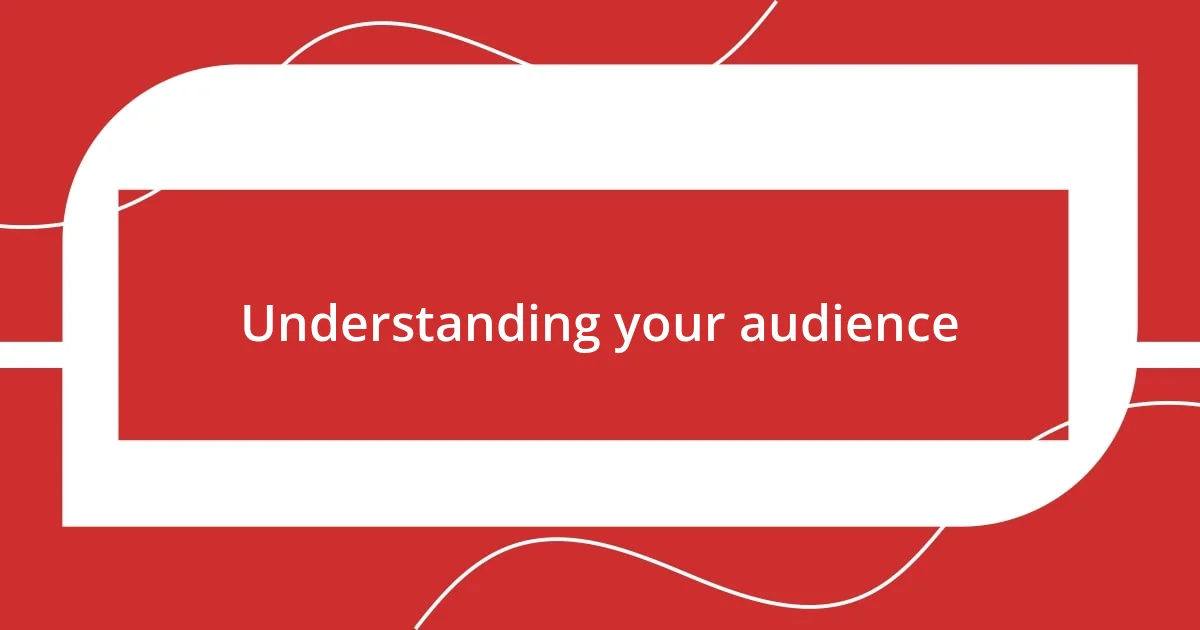
Understanding your audience
Understanding your audience is essential in political opinion writing. I recall a moment when I shifted the tone of my writing to better align with my readers’ concerns. By listening to comments and engaging in discussions, I learned that addressing local issues can create a stronger connection. What I discovered was that when I focused on what my audience cared about, my pieces sparked more conversation and engagement.
Additionally, getting to know my audience’s demographics helped me tailor my language and arguments. I remember the time I wrote a piece on climate change, initially presenting it with technical jargon. After receiving feedback, I rewrote it in simpler terms. The change was remarkable—readers began to share their personal experiences related to the topic. It made me realize that clarity and relatability vastly enhance the impact of my writing.
Ultimately, understanding my audience requires a mix of empathy and curiosity. I always aim to ask myself, “What journey are they on?” This mindset encourages me to weave their perspectives into my work, creating a shared narrative. When I focus on their experiences, my writing evolves into a dialogue rather than a monologue, fostering genuine connections.
| Audience Insights | Impact on Writing |
|---|---|
| Understanding concerns | Increases engagement |
| Recognizing demographics | Enhances clarity |
| Empathy towards experiences | Creates shared narratives |
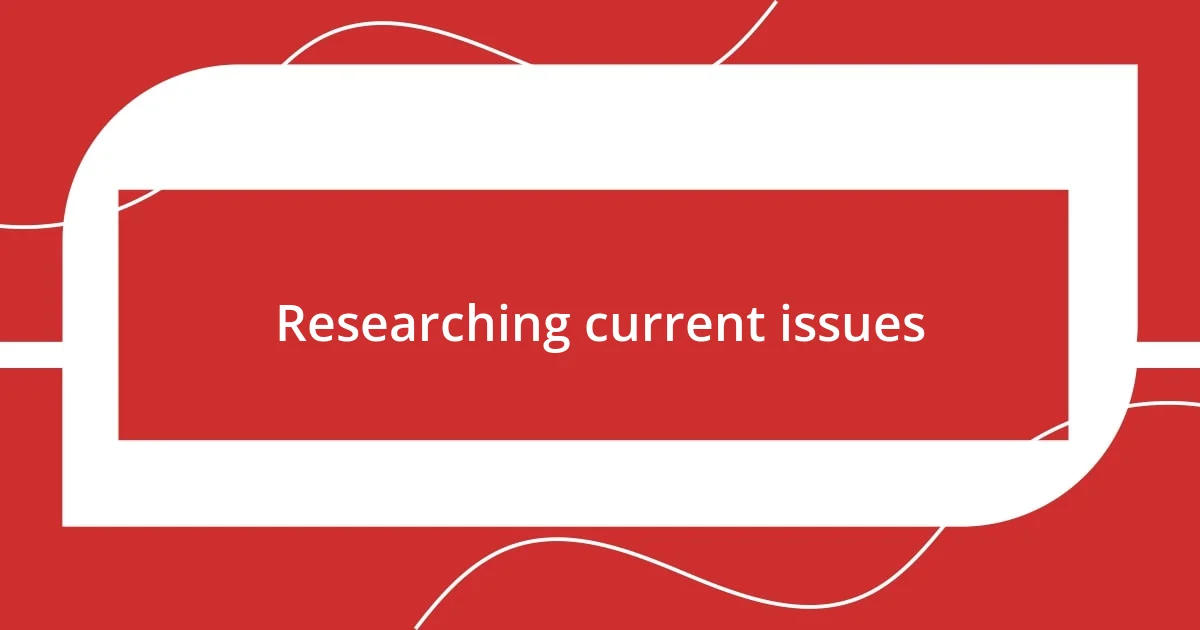
Researching current issues
Researching current issues is a crucial part of developing a persuasive political opinion piece. I remember diving into discussions about a local tax increase; I spent hours sifting through public comments, news articles, and surveys. The wealth of perspectives opened my eyes to complexities I hadn’t considered, transforming my initial stance into a more nuanced argument. Engaging deeply with the material allows you to better understand the multifaceted nature of any issue.
Here are some strategies I’ve found helpful in my research:
- Utilize diverse sources: Don’t limit yourself to traditional news outlets. Blogs, forums, and social media can offer real-time public sentiment.
- Follow expert insights: Academic studies and expert analyses help provide context and depth to your understanding.
- Engage in discussions: Attending community meetings or forums gave me firsthand accounts of how policies affect lives, enriching my perspective.
- Analyze conflicting opinions: Exploring viewpoints contrary to my own challenged my thinking, solidifying my arguments or reshaping my views entirely.
- Stay updated: Current events are fluid; subscribing to news alerts keeps you informed about breaking issues that could shift your writing focus.
In understanding current issues, I’ve learned it’s about being thorough and open-minded. Each perspective can add depth to the conversation, leading to more impactful writing.
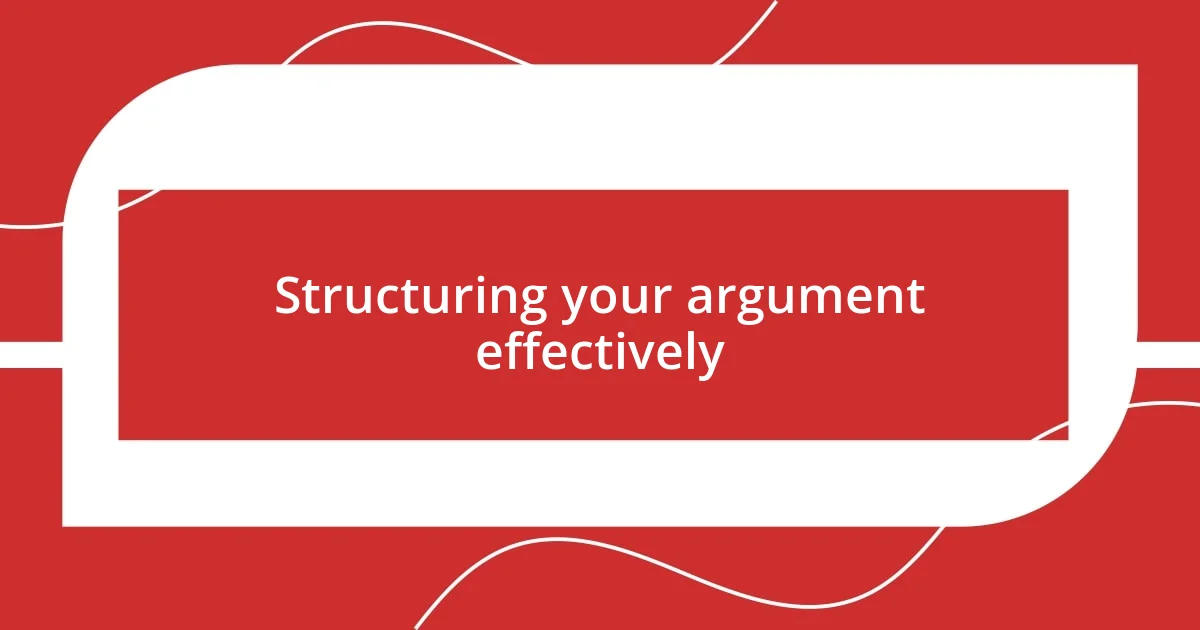
Structuring your argument effectively
Structuring your argument effectively requires a clear roadmap that guides your readers through your thoughts. I once crafted an article where I began by outlining my main argument: the importance of renewable energy adoption. I divided the piece into sections that each addressed a key point, ensuring that the flow logically built upon itself. This approach allowed me to maintain a cohesive narrative, making it easier for readers to follow my line of reasoning.
Breaking down complex ideas into digestible chunks is another strategy that has served me well. I remember writing a piece on healthcare policy where I used bullet points to present statistics and key facts. It not only provided clarity but also caught the reader’s attention. Incorporating visuals and examples enriched my argument, making it relatable to my audience’s daily lives.
Transitions between points are crucial for maintaining engagement. I often use phrases like “building on that idea” or “in contrast to this view” to create smooth shifts in my text. This practice enriches the reading experience and reinforces my arguments. Reflecting on my writing process, I realized that a well-structured piece doesn’t just present facts; it tells a story, leading readers through the layers of my argument thoughtfully.
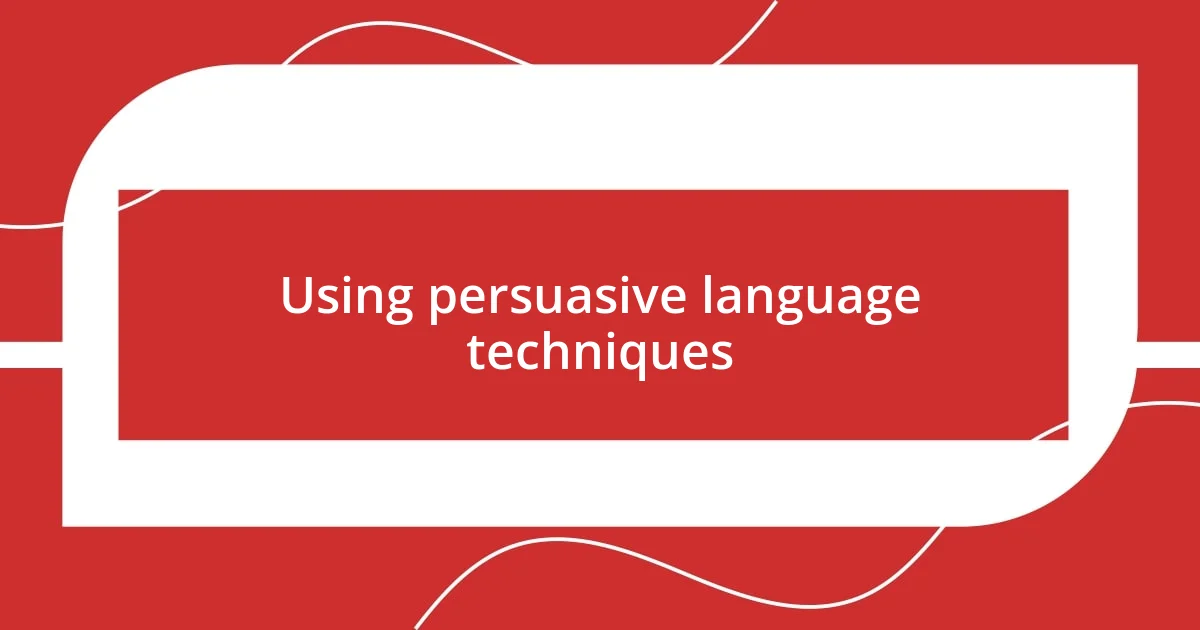
Using persuasive language techniques
When it comes to persuasive language techniques, the words we choose significantly impact how our ideas resonate with readers. I remember writing a piece on education reform, and I intentionally used emotive language to convey the urgency of the topic. Phrases like “every child deserves a chance” not only stirred emotions but also positioned my argument as a moral imperative. Isn’t it fascinating how a simple word choice can elevate a sentence from informative to compelling?
Another technique I’ve found invaluable is the art of storytelling. I often weave personal anecdotes into my pieces to create relatability. For instance, in discussing the effects of climate change, I shared a moment from my childhood when a beloved park transformed due to environmental neglect. This connection not only humanizes the issue but also engages the reader’s empathy, prompting them to reflect on their own experiences. After all, isn’t it easier to connect with a narrative than a mere statistic?
Finally, I think employing rhetorical questions can be a powerful tool in opinion writing. I often ask, “What kind of future do we want to create for generations to come?” This invites the reader to engage with my argument actively, urging them to consider their values and beliefs. By challenging them this way, I find that my pieces not only spark interest but also encourage deeper contemplation. Through these techniques, I strive to not just inform but inspire action and thought.
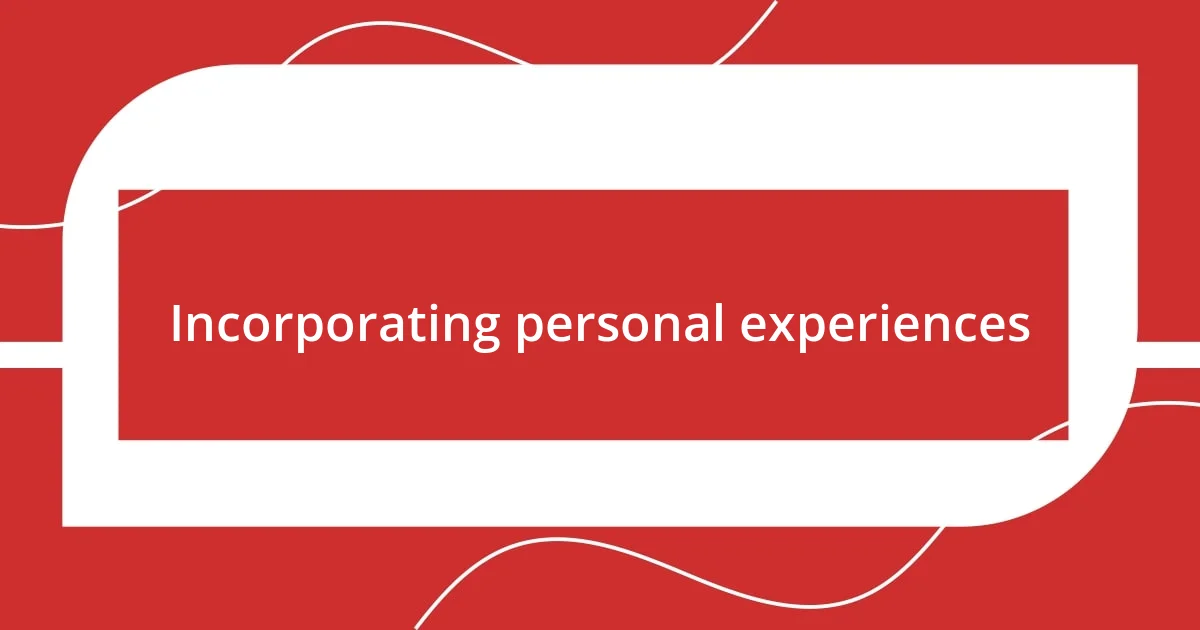
Incorporating personal experiences
Incorporating personal experiences into political opinion writing can transform dry facts into compelling narratives. I recall a time when I wrote about the challenges many face in accessing mental health services. Instead of just stating statistics, I shared my own journey navigating the healthcare system during a difficult time. This not only added authenticity but also made the subject more relatable for readers. Have you ever found comfort in someone else’s story? That’s the power of personal anecdotes.
Another instance comes from my discussion on immigration reform. I shared a story about my grandparents, who immigrated to this country with hopes and dreams. By painting a vivid picture of their struggle and resilience, I sought to evoke empathy and encourage readers to see the human side of policies. When readers connect emotionally, it becomes easier for them to engage with complex issues. Isn’t it remarkable how personal histories can spark broader conversations?
Finally, I love to ask questions that invite readers to reflect on their own lives. For example, while discussing social justice, I might ask, “How has your background shaped your views on equality?” This approach not only encourages personal introspection but also fosters a deeper connection to the argument I’m making. Through these experiences, I’ve learned that weaving personal stories into my writing creates a synergy that resonates far beyond the page.
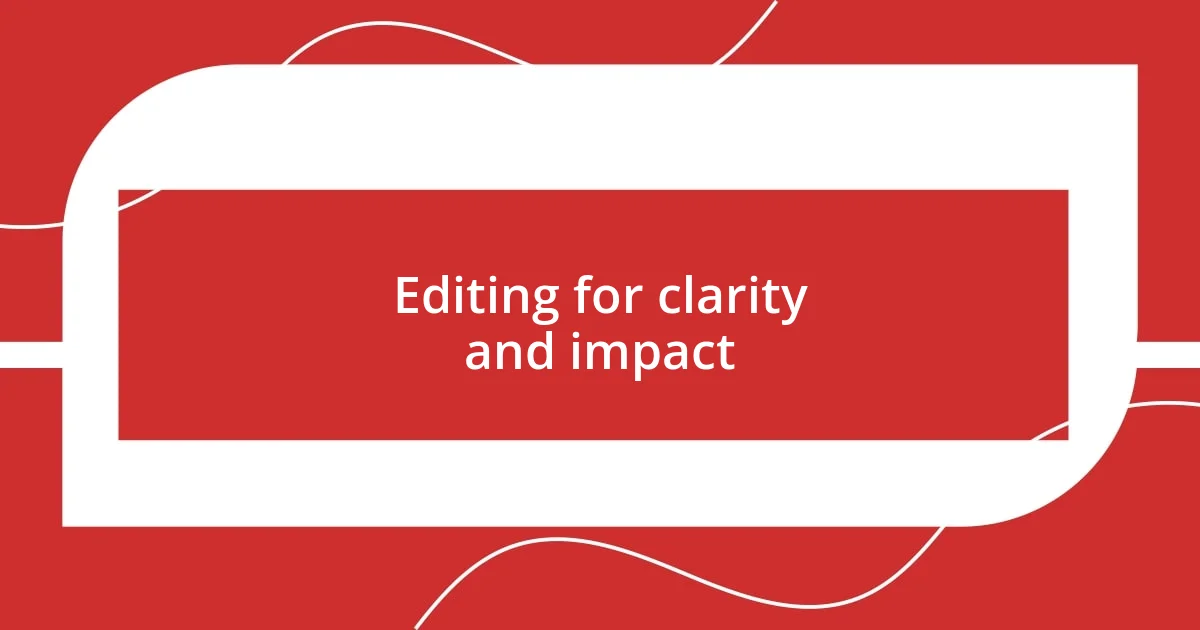
Editing for clarity and impact
Editing is where the magic happens. Once I’ve poured my thoughts onto the page, I dive into refining my work for clarity and impact. For instance, I remember a time when I had written an editorial on healthcare reform. After a thorough edit, I noticed that by rewording a couple of sentences, I transformed a vague point into a clear, direct argument that resonated much more deeply with readers. It reminded me that clarity is a writer’s best friend.
One strategy I often deploy is reading my work aloud. This simple practice helps me catch awkward phrasing and repetitive language that might have slipped through during the initial writing phase. I recall editing a piece on climate policy, and as I read it out loud, I stumbled over convoluted sentences that I had thought were perfectly fine. It felt liberating to simplify them, turning a tangled message into a straightforward call to action. How do you ensure your writing flows naturally? Listening to your own words can reveal so much.
Another vital aspect of editing for impact is cutting unnecessary fluff. I used to struggle with this until I realized that each word should serve a purpose. While drafting an opinion on government transparency, I initially included extensive background information. Upon reflection, I stripped it down to the essentials, enhancing the emotional weight of my argument. Have you ever felt the relief of clarity after cutting out the excess? It can transform your writing, making it sharper and more compelling.







